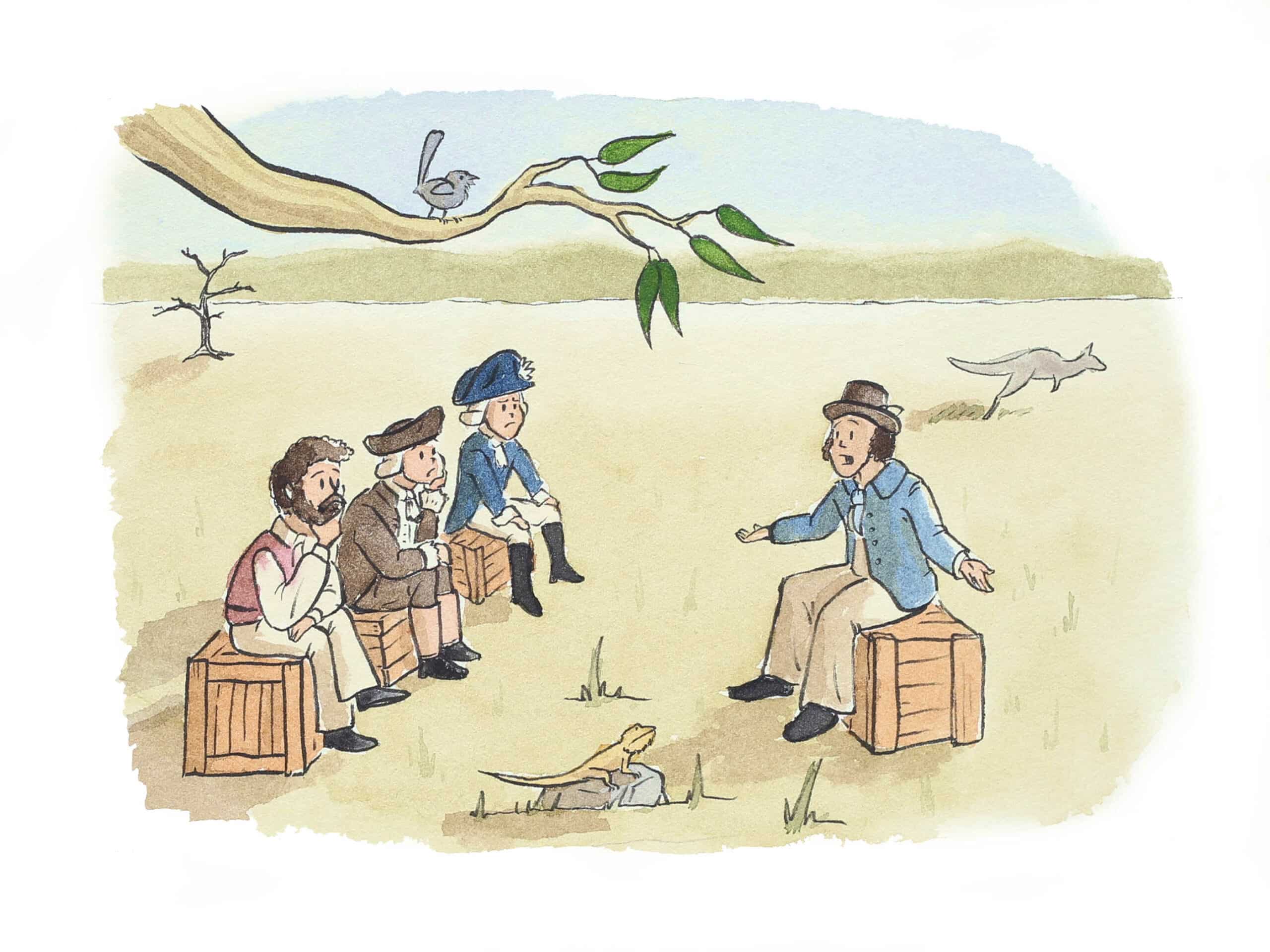Susannah and Henry Kable and the Lost Parcel
Case Summary, Evidence and the Rule of Law
To learn more about the Kable’s story, read our book ‘The Lost Parcel.’
Facts of the Case:
Cable v Sinclair [1788] NSW KR 7
In 1783, 19-year-old Henry Kable (or Cable), together with his father, broke into a house in England and stole a lot of household goods. Henry and his father were sentenced to death. His father was hung but due to his young age, Henry’s sentence was reprieved to transportation to America for seven years.
In 1784, 20-year-old Susannah Holmes stole linen, clothing and kitchen goods from her employer. She was sentenced to death and her sentence reprieved to transportation to ‘some of Your Majesty’s Colonies or Plantations in America for the term fourteen years.’
Whilst awaiting transportation, Susannah and Henry met in Norwich prison and had a baby, Henry Jr. As they were sentenced to death they were considered ‘dead to the law.’ This means that they no longer had any legal rights as citizens of England. They applied to be married but were refused.
After some drama, Susannah, Henry and their baby Henry Jnr were selected to travel to the new colony of New South Wales with the First Fleet.
Before leaving England, a large parcel of goods was donated to the young family and put onboard the cargo ship Alexander with the First Fleet. The Kable’s were to collect their parcel at the end of their journey from the Ship’s Captain Mr Duncan Sinclair.
When they arrived in Sydney, the Kable’s were married. They asked after their parcel of goods, but it could not be found. The couple sought justice for their ‘lost parcel.’

On 1 July 1788, the Kable’s lodged a civil claim in the NSW Court of Civil Jurisdiction. They asked the Ship’s Captain, Mr Duncan Sinclair, one of the most powerful men in the new colony ‘to show cause why the parcel was not forthcoming, or to make restitution for the value.’
The case was decided in favour of the Kable’s and Captain Sinclair was ordered to pay damages of £15 for the lost parcel.

Evidence
Eyewitnesses accounts were provided during the trial.
William Aston Long, First Mate of the Alexander transport testified that he saw the parcel loaded onto the ship and that it was stored in the gun-room.
Thomas Trimmings, Steward of the Alexander transport remembered seeing the parcel when the ship stopped at Rio de Janeiro.
John Hunter, Captain of the Sirius stated that, on request of Governor Phillip, he inquired to Captain Sinclair about the parcel at Cape of Good Hope.


For the full depositions see
https://www.ruleoflaw.org.au/education/lost-parcel/court-documents/
A further note…
Following this case, Henry Kable became a Chief Constable and had many successful business ventures. He had 10 more children and died in 1846.



The rule of law principles
Equality Before the Law
The rule of law is the principle that all people, no matter their position, occupation or wealth, are treated equally by the law. This means that if someone wealthy or powerful commits a crime or harms someone else’s property, health or reputation, they will face consequences according to law in the same way as anyone else.
To learn more click here.
This equality before the law is essential to guard against arbitrary behaviour from those in positions of power and to protect the rights of all individuals, no matter their position, occupation or wealth. It ensures all people can receive equal protection from the law and can have equal access to remedies through the legal system. Where there is trust that the legal system will provide justice to all, the society will have greater stability, safety and prosperity.
What we see in the Kable’s story is the principle of equality before the law in action. Convicts that had no rights when they left England were able to get married and receive the protection of the law in the new colony. They were then treated equally before the law by being able to sue the powerful ship’s Master, Duncan Sinclair, for their lost parcel of possessions.
We still see this principle of equality in action today in Australia’s modern legal system.


